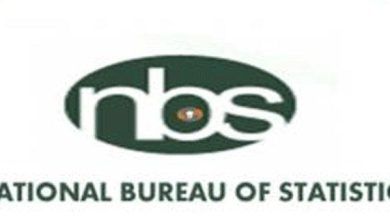
The World Bank has projected that Nigeria’s economy will grow at an average rate of 3.6% between 2025 and 2026, fueled by ongoing reforms implemented by the Federal Government.
This growth outlook was outlined in the World Bank’s latest Global Economic Prospects report, released on Thursday.
The report highlights that Nigeria’s Gross Domestic Product (GDP) growth is estimated to reach 3.3% in 2024, largely driven by the services sector, particularly in financial and telecommunications services. The World Bank credits the recent reforms especially the removal of fuel subsidies and the introduction of controversial tax bills for helping to boost business confidence in the country.
“Macroeconomic and fiscal reforms have significantly improved business confidence,” the World Bank stated. “In response to rising inflation and a weak naira, the central bank has implemented tighter monetary policies.”
The report also notes that Nigeria’s fiscal deficit has narrowed, driven by a surge in revenues, which benefited from the unification of the exchange rate and improved revenue administration following the elimination of implicit foreign exchange subsidies.
The World Bank also provided a regional outlook for Sub-Saharan Africa, predicting that growth in the region will strengthen to 4.1% in 2025 and 4.3% in 2026, as financial conditions improve and inflation continues to decline. These revisions represent a 0.2 percentage point upward adjustment for 2025 and a 0.3 percentage point increase for 2026. As a result, growth projections for nearly half of Sub-Saharan Africa’s economies have been upgraded.
In Nigeria’s case, the World Bank forecasts that growth will stabilize at 3.6% annually in 2025 and 2026. The expected gradual decline in inflation, following the tightening of monetary policies in 2024, is expected to support consumption and provide a boost to the services sector, which remains the main driver of Nigeria’s economic expansion.
The report also touched on Nigeria’s oil production, which is anticipated to increase during the forecast period, although it is expected to remain below the OPEC quota. Oil production has seen only marginal growth over the past year, with daily production rising by 152,000 barrels per day in November 2024, according to the latest monthly oil market report from the Organization of the Petroleum Exporting Countries (OPEC).
The OPEC report indicated that Nigeria’s oil production, including condensates, increased by 11% in November, from 1.333 million barrels per day (bpd) in October to 1.486 million bpd. Despite this increase, the Nigerian Upstream Petroleum Regulatory Commission (NUPRC) reported a slight month-on-month decline in December 2024, with average daily oil output dropping by 1.35%, from 1.690 million bpd in November to 1.667 million bpd.
Despite these fluctuations in oil production, the World Bank’s report cautioned that per capita income growth in Nigeria will likely remain weak over the forecast period, indicating a continuing challenge for many Nigerians to feel the benefits of the projected economic growth.




